Have you ever wondered about the intricacies of authorship rights transfer? It's a crucial topic, especially for writers looking to publish their work and ensure they retain control over their creations. Understanding the process can help you navigate contracts and agreements with confidence. Curious to find out more about securing your rights and the steps involved? Let's dive deeper!
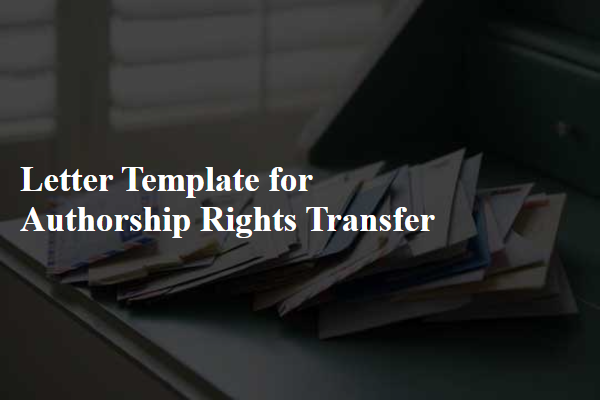
Author Information
Authors transferring their rights to publishing entities, such as academic journals or publishing houses, should provide key details for proper author identification and rights management. Full name (including middle initial, if applicable) establishes authorship alongside unique identifiers such as ORCID iDs. Affiliation (such as university name and department) ensures institutional recognition. Contact information, including email addresses, facilitates communication regarding manuscript status or legal matters. Additional relevant details may include contribution details, acknowledging specific roles such as research, writing, or editing, reflecting collaborative efforts in the work produced.
Work Description
Authorship rights transfer involves the legal process where authors transfer their rights to a publisher or another entity. This typically includes rights associated with the reproduction, distribution, and modification of the work, which could be a manuscript, article, or research paper. The transfer document should clearly define the work description, specifying the title, format, and any supplementary materials, such as datasets or illustrations that accompany the primary text. Accurate identification of the author(s), including full legal names and affiliations, should be included to ensure proper recognition and attribution. Additionally, the document should address the duration of the rights being transferred and any terms regarding royalties or licensing, ensuring clarity on both the author's and the publisher's obligations and entitlements in the publication process.
Rights Being Transferred
The authorship rights transfer agreement involves the complete transfer of intellectual property rights from the author to the publisher or organization. This includes, but is not limited to, reproduction rights, distribution rights, and public display rights concerning the original work, such as a research article, literary work, or artistic creation. Specific elements of rights covered typically include all formats (print, electronic, and online), derivative works, and adaptations. The date of the transfer is crucial, ensuring clarity on when ownership is officially conferred. It's essential to specify any exceptions or retained rights the author may wish to uphold, such as the right to reuse portions of the work in future publications. Transparency in the agreement helps prevent future disputes regarding usage and ownership.
Effective Date
An authorship rights transfer agreement is a legal document that outlines the transfer of ownership of intellectual property created by an author, such as a manuscript, article, or artwork. The effective date marks the moment when the transfer of rights becomes legally binding. This date can significantly impact the rights and responsibilities of both the author and the receiving party, like a publisher (for example, Oxford University Press) or an organization (such as a non-profit). It's essential to include specific details surrounding the effective date to avoid confusion and ensure that all parties understand when the rights are officially transferred, which can have implications on revenue distribution, copyright claims, and future usage permissions.
Signature and Consent
Ownership transfer of authorship rights involves legal documentation. The signed agreement serves as a formal declaration where the original author, often referred to as the Transferor, relinquishes their rights to another party, commonly called the Transferee. Important components include the specific work of authorship--detailed by title and publication details--to avoid ambiguity. Consent should be explicitly documented using clear language, outlining the scope of rights transferred, such as reproduction, distribution, and modifications. Signatures from both parties are critical, date-stamped to indicate when the rights were officially transferred. Such an agreement is vital for protecting intellectual property and ensuring proper attribution and remuneration.

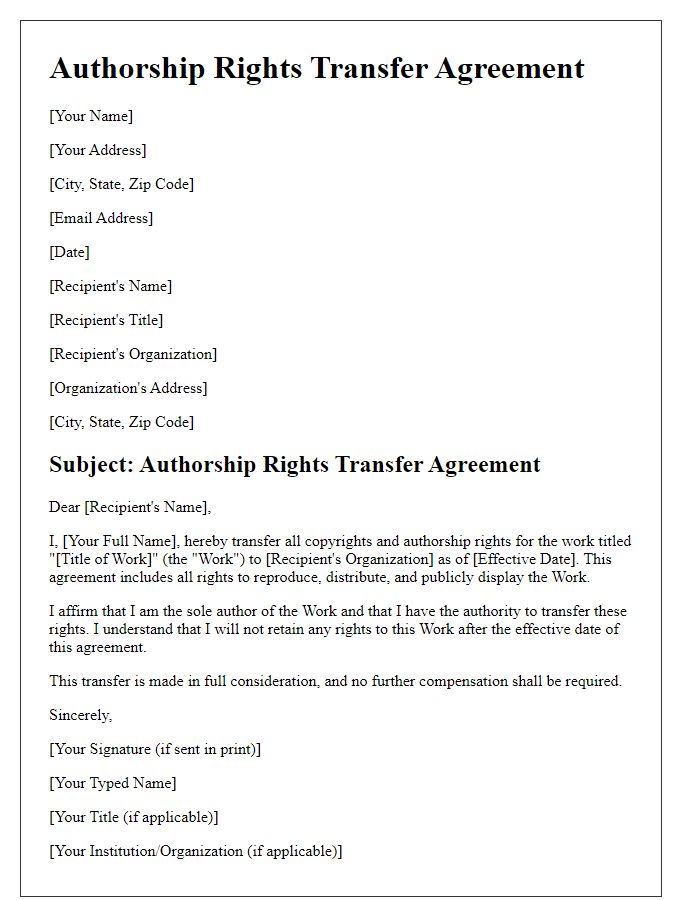
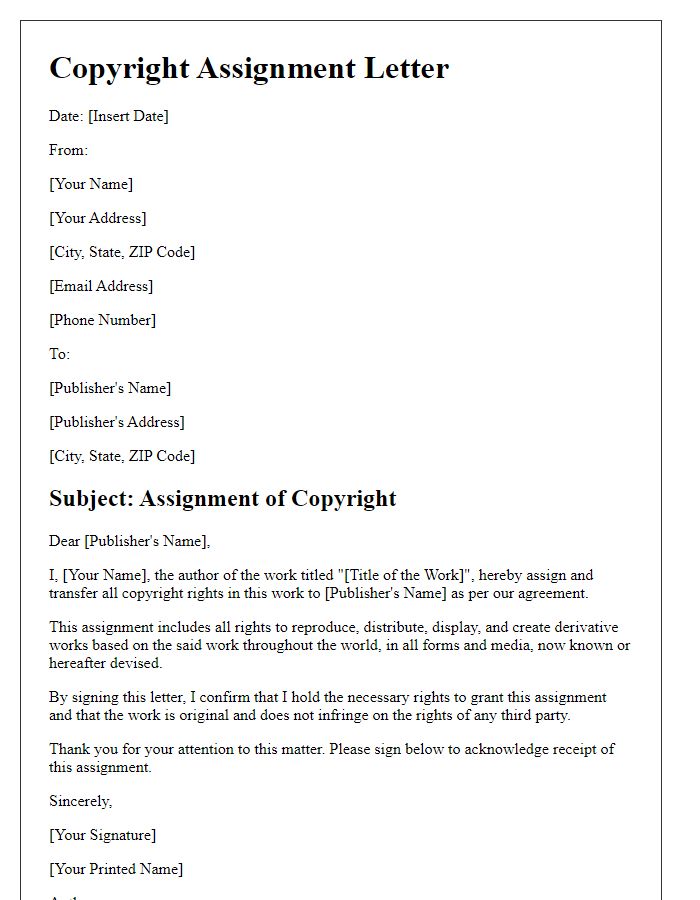
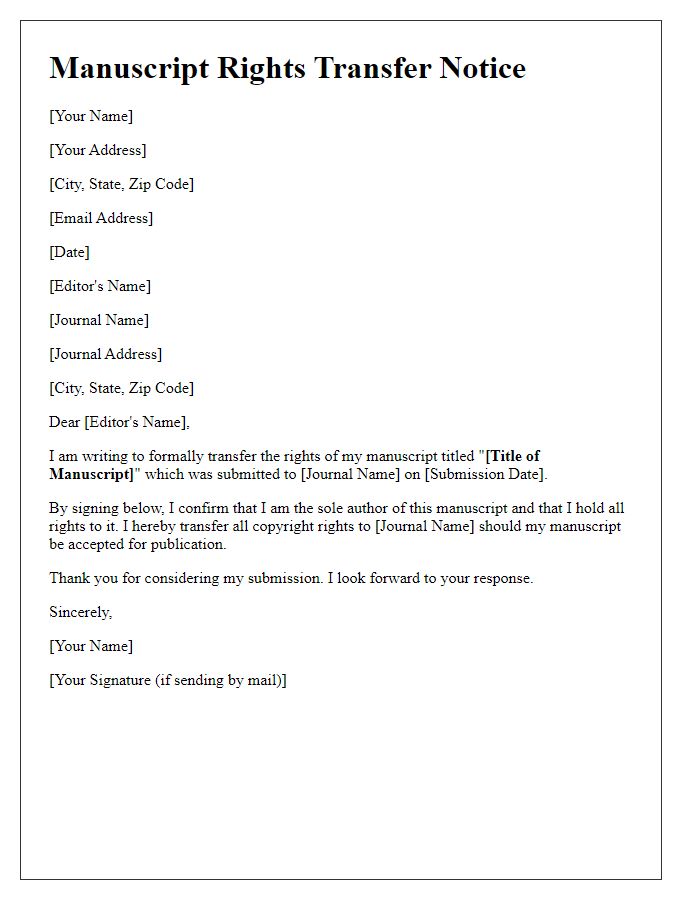
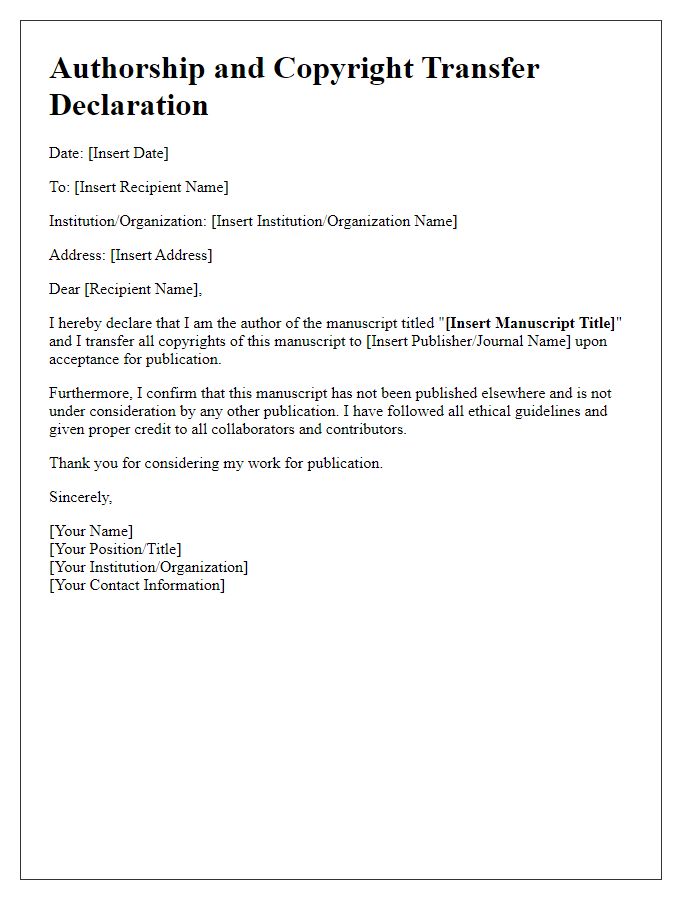
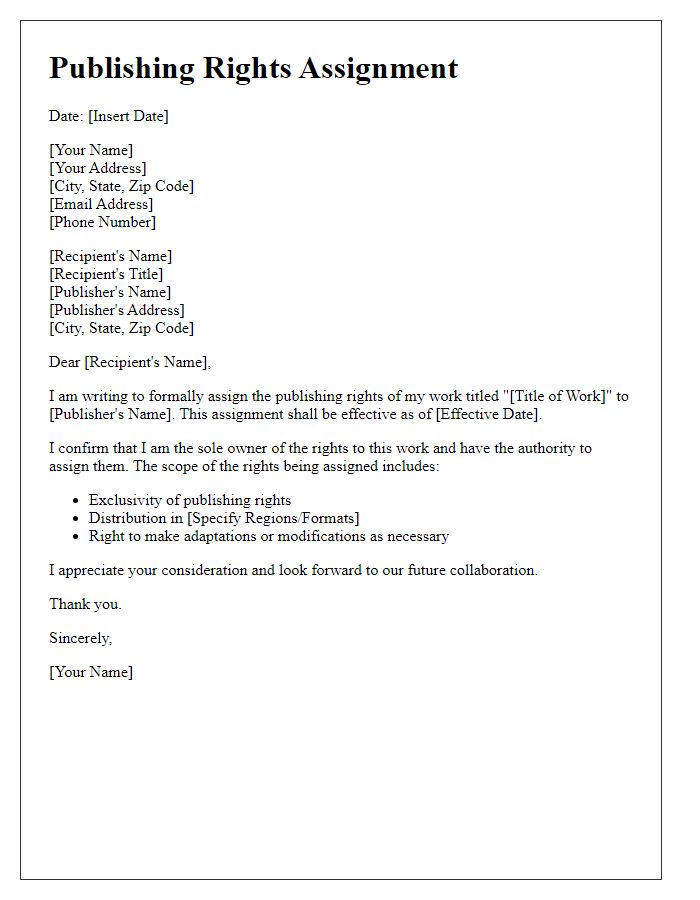
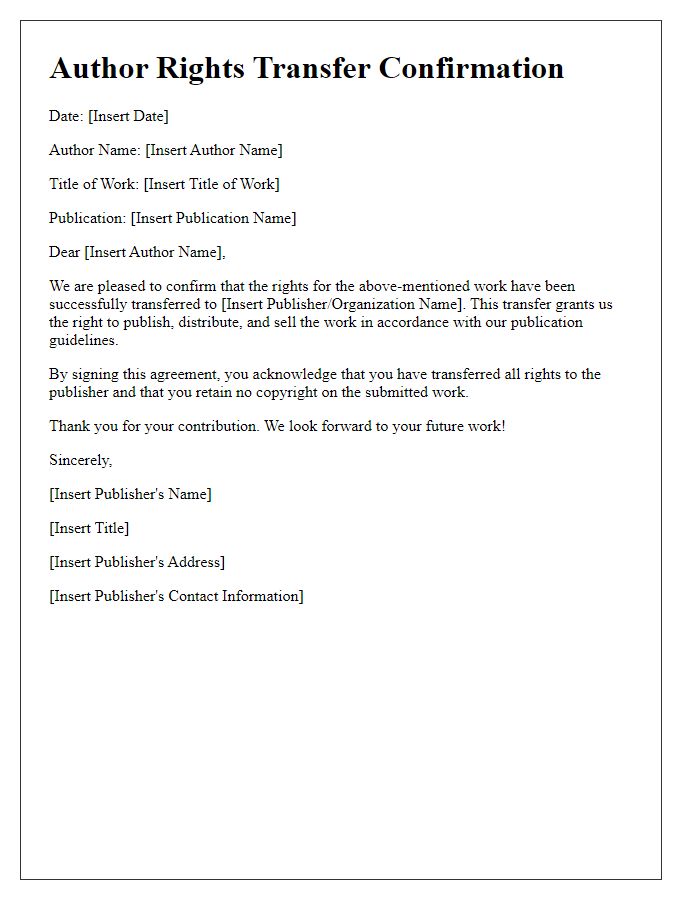
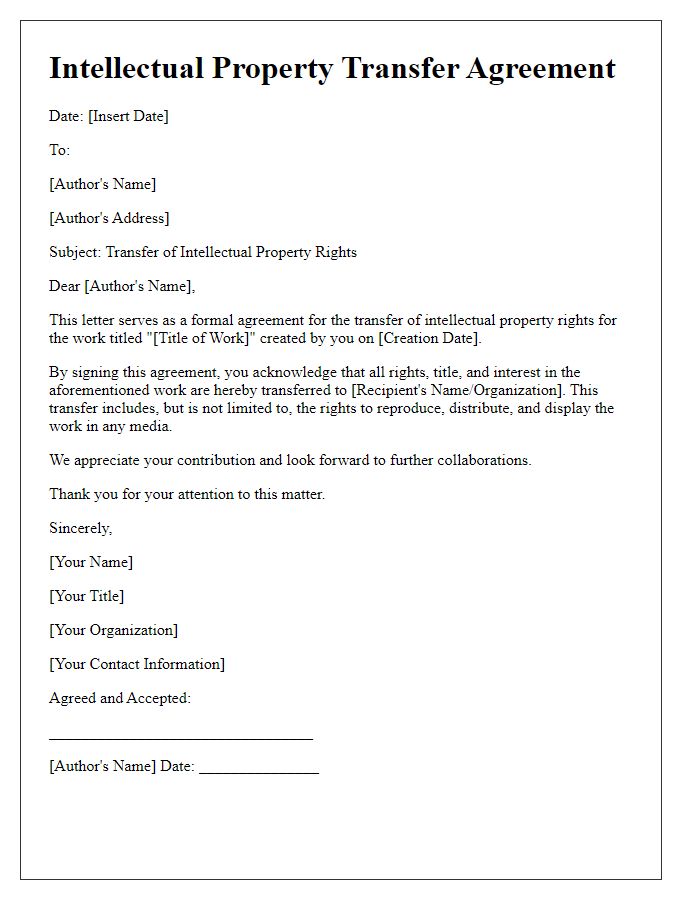
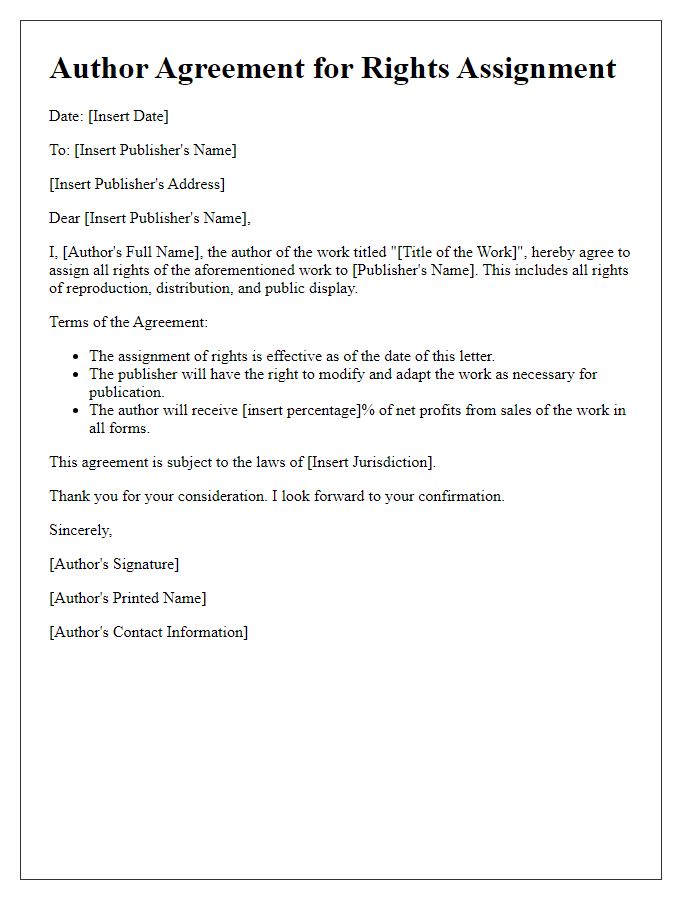
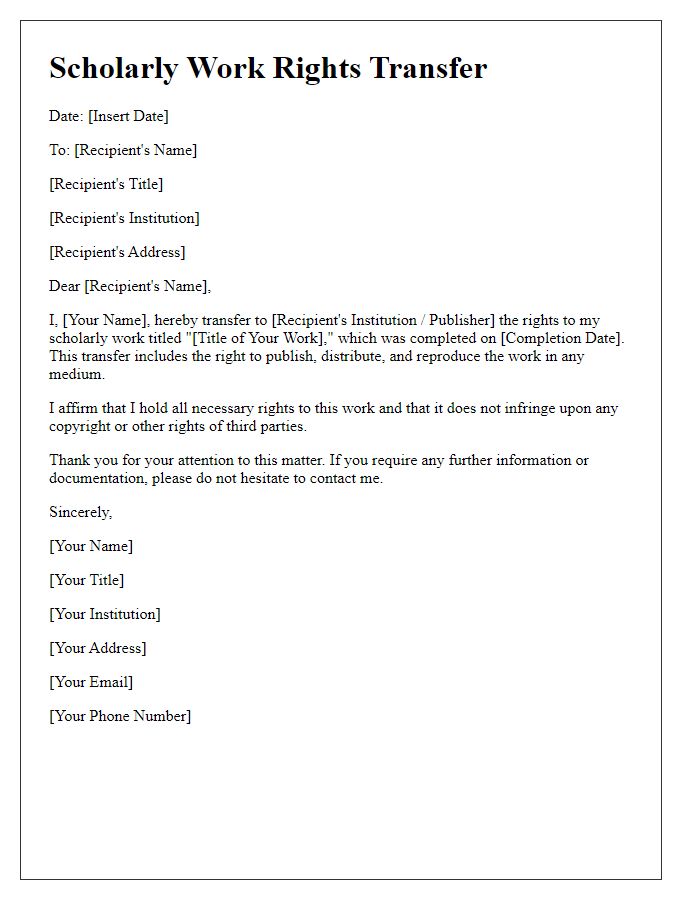
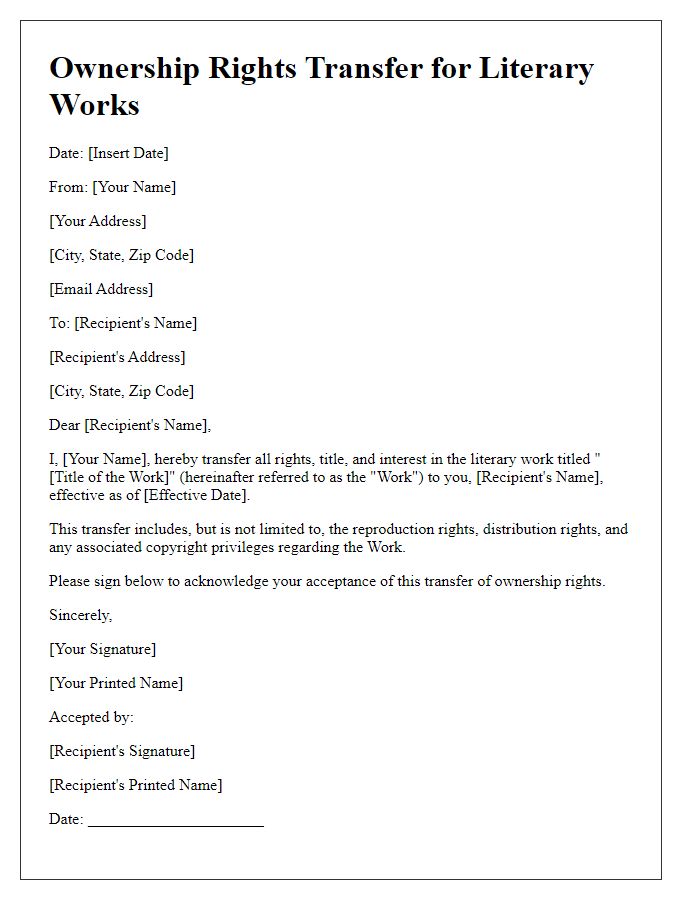


Comments